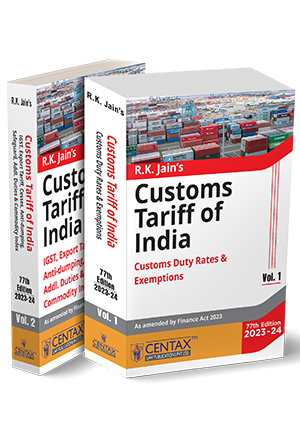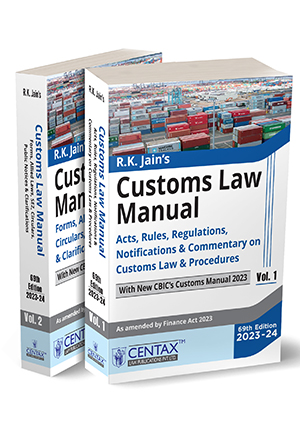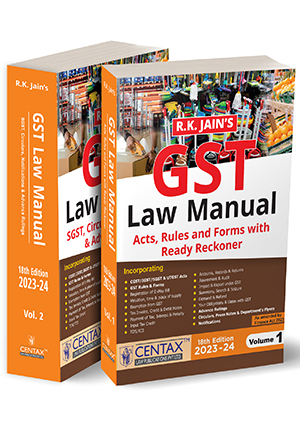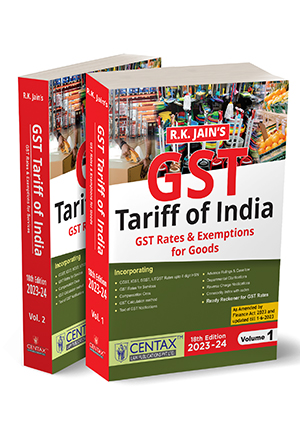Weekly Round-up on Tax and Corporate Laws | 3rd to 7th June 2024
- Blog|Weekly Round-up|
- 11 Min Read
- By Taxmann
- |
- Last Updated on 11 June, 2024
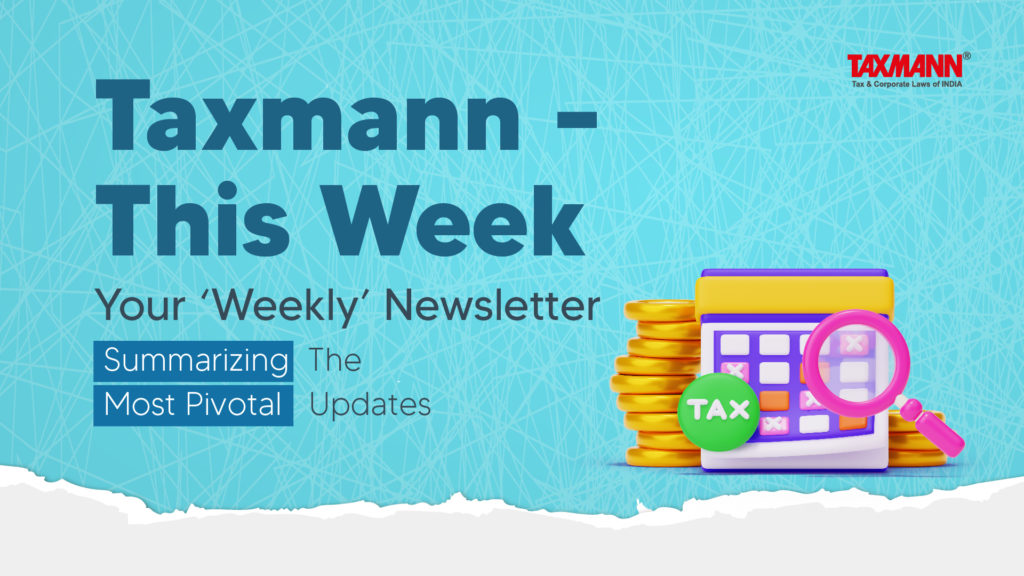
This weekly newsletter analytically summarises the key stories reported at taxmann.com during the previous week from June 03 to 07, 2024, namely:
- Compensation received from ‘Flipkart’ for loss in value of ESOP due to disinvestment not taxable as perquisite: ITAT;
- FA 2017 amendment restricting set-off of house property loss to Rs. 2 lakh is constitutionally valid: HC;
- RBI proposes to set up a ‘Digital Payments Intelligence Platform’ to mitigate payment fraud risks;
- SEBI mandates direct payout of securities by clearing corporation to demat accounts of clients;
- HC dismissed writ petition challenging notifications which extended limitation to frame adjudication orders u/s 73;
- Fresh SCN was to be issued to assessee if GST Authority intended to modify tax proposal: HC; and
- Checklist for clause 11 of Form 3CD in Tax Audit under Income Tax Act, 1961.
1. Compensation received from ‘Flipkart’ for loss in value of ESOP due to disinvestment not taxable as perquisite: ITAT
The petitioner, Sanjay Baweja, was an ex-employee of Flipkart Internet Private Limited (FIPL), a wholly-owned subsidiary of Flipkart Marketplace Private Limited (FMPL). FMPL was a wholly-owned subsidiary of Flipkart Pvt. Ltd., Singapore (FPS). In 2012, FPS rolled out an Employee Stock Option Plan (ESOP) called Flipkart Stock Option Plan (FSOP).
The petitioner was granted 1,27,552 stock options from 01.11.2014 to 31.11.2016 with a vesting schedule of 4 years. On 23.12.2022, FPS announced the disinvestment of its wholly-owned subsidiary called PhonePe. Thereafter, the value of the stock options of FPS fell, and FPS decided to grant the option holders a payment of USD 43.67 per option as compensation towards the loss in the value of the options. It was also stated that the FPS would be withholding tax on the said compensation considering it as a perquisite under Section 17(2)(vi). The petitioner filed an application under Section 197 seeking a ‘Nil’ deduction certificate.
The Assessing Officer (AO) rejected the application, and the matter reached the Delhi High Court.
The High Court held that the amount in question cannot be considered as a perquisite under Section 17(2)(vi) as the stock options were not exercised by the petitioner, and the amount in question was a one-time voluntary payment made by FPS to all option holders in lieu of the disinvestment of PhonePe business.
The most crucial ingredient of the inclusive definition of perquisite is the determinable value of any specified security received by the employee by way of transfer/allotment, directly or indirectly, by the employer. As per Explanation (c) to Section 17(2)(vi), the value of specified security could only be calculated once the option is exercised. A literal understanding of the provision would provide that the value of specified securities or sweat equity shares is dependent upon the exercise of option by the petitioner. Therefore, for an income to be included in the inclusive definition of “perquisite”, it is essential that it is generated from the exercise of options, by the employee.
In this case, the petitioner had merely held the stock options without exercising them, so they do not constitute taxable income for the petitioner since none of the contingencies specified in Section 17(2)(vi) have occurred.
Read the Ruling
2. FA 2017 amendment restricting set-off of house property loss to Rs. 2 lakh is constitutionally valid: HC
By way of the instant writ petition, the Delhi High Court was called upon to examine the constitutional validity of Section 31 of the Finance Act 2017, which has brought about an amendment in the Income-tax Act 1961 by inserting sub-section (3A) to Section 71.
The petitioner was a government employee who claimed to have constructed his house in April 2014 by incurring an expenditure of ₹1.35 crore. The said construction was financed through a housing loan, partially raised from the IDBI Bank and the rest from his father, amounting to ₹85,00,000 and ₹50,00,000, respectively.
Since the house was constructed from borrowed capital, the amount of interest payable on such capital was eligible for deduction from the head “Income from house property”. The income chargeable under the said head was required to be computed after making a deduction of the interest payable on such capital. The said deduction was also eligible for set-off as per the provisions of Section 71 of the Act.
However, by virtue of the Finance Act 2017, the threshold limit for set off of loss under the head “Income from house property” against any other head of income was restricted to an amount of ₹2 lakh for a particular Assessment Year with effect from 01.04.2018, i.e., for AY 2018-19 and subsequent AYs.
The petitioner contended that the amendment was prejudicial to his interest as he could not have foreseen that he would be disentitled from claiming the benefits of the provisions in question. The amendment caused a financial burden on the petitioner, leaving him with a meagre disposable income to run the livelihood. Further, the amendment is against the principle of fairness, which must be the basis for every legal rule.
The High Court held that the subsequent amendment in Section 71 only aims at capping the set off of losses under the head of “Income from house property” from any other head of income at ₹2 lakh. It only attempts to circumscribe the indefinite amount of set-off to a certain amount. The change introduced by the legislation reflects the larger policy of the legislature. It has an equalizing effect on all the taxpayers claiming any deduction under the abovementioned head.
The amendment is applicable to all the category of persons without any apparent or real discriminatory classification. It does not have the effect of creating any separate class or classification. The alteration in the manner of imposing tax in the present case cannot be said to deprive the taxpayer of a benefit. Instead, it is tantamount to a realignment of the existing provisions, bearing in mind the broader economic and policy considerations, which the legislature is duly empowered to do.
Therefore, the amendment applies to all persons without any apparent or real discriminatory classification. As a sequitur, it cannot be said to be against the tenets of equality encapsulated in Article 14 of the Constitution.
Read the Ruling
3. RBI proposes to set up a ‘Digital Payments Intelligence Platform’ to mitigate payment fraud risks
On June 7, 2024, the RBI’s Monetary Policy Committee decided to keep the policy repo rate under the liquidity adjustment facility (LAF) unchanged at 6.50%, the Standing deposit facility (SDF) rate unchanged at 6.25%, and the marginal standing facility (MSF) rate and the Bank Rate at 6.75%.
The RBI has also introduced a series of developmental and regulatory policy proposals to enhance India’s financial ecosystem’s security, efficiency, and inclusivity. The focus is mainly on Regulations and Payment Systems and FinTech. The proposals include revising bulk deposit limits, rationalising export and import guidelines, setting up a Digital Payments Intelligence Platform to combat payment fraud and expanding the e-mandate framework for recurring payments. Some of the key proposals are as follows:
(a) Revising ‘Bulk Deposits limit’ for enhanced financial operations
The RBI’s plan to revise the definition of bulk deposits for Scheduled Commercial Banks (SCBs) and Small Finance Banks (SFBs) is a significant step towards streamlining financial operations. Currently, bulk deposits are set at single rupee term deposits of Rs 2 crore and above. The proposed revision, which will raise this limit to Rs 3 crore for SCBs and SFBs, is expected to facilitate larger financial transactions. For local area banks, the bulk deposit limit will be set at Rs 1 crore, which aligns with the limit for regional rural banks (RRBs), thereby ensuring a level playing field.
(b) Simplifying Export and Import Guidelines
The RBI intends to simplify the guidelines for exporting and importing goods and services. This move aims to ease operational procedures, making it easier for all stakeholders involved in cross-border transactions. The draft regulations will be available on the RBI’s website by the end of June 2024 for public feedback before final approval.
(c) Setting up a ‘Digital Payments Intelligence Platform’ to combat payment fraud risks
The RBI has proposed setting up a ‘Digital Payments Intelligence Platform’ to boost the security of digital payments and combat fraud. This platform will employ advanced technologies to deliver network-level intelligence and enable real-time data sharing across various payment systems. A committee has been formed to examine the initiative, and recommendations are expected within two months.
(d) Introducing auto-replenishment facility for UPI Lite Wallet
Currently, the UPI Lite facility allows customers to load their UPI Lite wallets up to Rs. 2000/- and make payments up to Rs 500/- from the wallet. The new feature will enable automatic wallet loading when the balance falls below a specified threshold, eliminating the need for additional authentication or pre-debit notifications. This enhancement aims to improve user convenience and streamline digital payments.
(e) Conclusion
These proposals aim to create India’s more secure, efficient, and inclusive financial system. The RBI addresses current challenges and fosters a safer financial environment by revising bulk deposit limits, simplifying export and import guidelines, and setting up a Digital Payments Intelligence Platform. These initiatives will contribute to a more robust and forward-looking financial landscape in India.
Read the Press Release
4. SEBI mandates direct payout of securities by clearing corporation to demat accounts of clients
On June 5, 2024, SEBI issued a new circular mandating the direct payout of securities to client demat accounts by Clearing Corporations (CCs). This eliminates the previous practice of brokers pooling securities. Additionally, SEBI directed that CCs establish a mechanism for identifying unpaid securities and funded stocks under a margin trading facility.
(a) ‘Direct Payouts’ mitigating risks in a brokerage operation
The previous practice of pooling securities posed significant risks, including the potential for misuse, counterparty risk, and lack of transparency. SEBI’s mandate for direct payouts to client demat accounts effectively mitigates these risks. Direct payouts ensure that client securities are directly credited to their accounts, eliminating the risk of misuse by brokers.
(b) New norms for Margin Trading
The circular also includes an amendment to the ‘Master Circular for Stock Brokers.’ According to the new norms, funded stocks held by Trading Members (TMs) or Clearing Members (CMs) under the margin trading facility must be held by way of a pledge. A separate demat account tagged ‘Client Securities under Margin Funding Account’ is mandatory.
This account will only contain funded stocks for margin funding, with no other transactions allowed. These stocks are then transferred to the client’s demat account, followed by an auto-pledge in favour of the ‘Client Securities under Margin Funding Account.
(c) Provisions for managing Internal Shortages
Provisions are also established for handling internal shortages from netting positions between clients. Trading Members (TMs) and Clearing Members (CMs) will manage these through the Clearing Corporation’s specified auction process. Brokers are prohibited from charging clients additional fees beyond those imposed by Clearing Corporations.
(d) Conclusion
In conclusion, SEBI’s new regulations enhance the security and transparency of client securities, mitigate risks in brokerage operations, and establish clear norms for margin trading and managing internal shortages. These measures collectively strengthen investor protection and trust in the securities market.
Read the Circular
5. HC dismissed writ petition challenging notifications which extended limitation to frame adjudication orders u/s 73
The Honorable Allahabad High Court had recently held that language of Section 168A being unequivocally clear and considering spread of COVID-19 pandemic (i.e., force majeure), the Government has power to issue notification extending time limit for adjudication existed and no excessive extension of time was granted. This ruling is given by High Court of Allahabad in case of Graziano Trasmissioni v. Goods and Services Tax.
Facts
In the present case, the petitioner challenged the notification, which provided an extension and time was granted to Adjudicating Authorities to pass adjudication orders with reference to proceedings for the financial year 2017-18 up to 31-12-2023. It was submitted that no power to issue such notifications extending the time limit for adjudication existed.
High Court
The Honorable High Court noted that the issuance of the time extension notification under Section 168A was not an administrative action but a legislative function. The Court also noted that the spread of the COVID-19 pandemic (i.e., force majeure) remained constant from 15-3-2020 to 28-2-2022. Therefore, it was observed that the first condition of existence of circumstances for the exercise of the said power described as conditional legislation, stood fulfilled.
Thus, the Court dismissed the writ petition and held that the power to issue notification extending time limit for adjudication existed, and no excessive extension of time was granted.
Read the Ruling
6. Fresh SCN was to be issued to assessee if GST Authority intended to modify tax proposal: HC
The Honorable Madras High Court had recently held that if authority intended to modify the tax proposal, a fresh show cause notice was to be issued to the assessee. The Court also set aside order since show cause notice and intimation were issued to assessee proposing tax liability with regard to sales suppression order didn’t levy tax and penalty on the basis of sales suppression. This ruling is given by High Court of Madras in case of Vela Agencies v. Assistant Commissioner, State Tax.
Facts
The petitioner received intimation dated 24.11.2022 and notice dated 29.12.2022 to show cause why tax liability should not be imposed with regard to sales suppression. The petitioner replied to the intimation on 28.12.2022 by stating that the petitioner was a distributor of Aircel Limited and was unable to conduct business after 28.02.2018 due to the closure of the business of Aircel.
However, the department issued an order dated 23.06.2023 and imposed tax liability of Rs.14,97,072/- and an equal amount by way of penalty by comparing the petitioner’s GSTR 3B return and GSTR 2A. It filed writ petition against the demand order and contended that the impugned order proceeded on completely different basis from the show cause notice.
High Court
The Honorable High Court noted that the impugned order did not proceed on the basis of sales suppression, and if the department intended to modify tax proposal in light of petitioner’s reply, a fresh show cause notice should have been issued. Therefore, it was held that the impugned order was liable to be set aside by leaving it open to the department to initiate fresh proceedings by issuing a show-cause notice to the petitioner.
Read the Ruling
7. Checklist for clause 11 of Form 3CD in Tax Audit under Income Tax Act, 1961
Clause 11 of Form 3CD requires the taxpayer to furnish the details about the “Books of Accounts” maintained by them. This clause aims to ensure transparency and proper documentation of taxpayer financial transactions. Further, it helps verify whether the taxpayer has maintained the required records as per the legal requirements, facilitating accurate computation of income and proper assessment by tax authorities. Thus, it becomes very crucial for tax auditor to ensure the proper compliance and reporting under this clause.
Since a checklist plays a pivotal role in efficient and effective reporting, tax auditors should follow a detailed checklist while reporting under this clause. Following are some most important checkpoints that the tax auditor should take care off:
- Has the tax auditor obtained an MRL of the list of books maintained by the assessee, along with the locations at which these are maintained?
- Does the MRL also give a list of computer-generated books of account?
- Whether the assessee is maintaining his books of account on the cash basis of accounting or mercantile basis?
- Is the assessee liable for statutory audit of accounts under any other law? If so, has the assessee maintained books of account as required by the concerned statute?
- If the assessee is not liable for a statutory audit, has the assessee maintained the normal accounts, such as cash books, bank books, sales registers/journals, purchase registers/journals, and ledgers?
- Has the tax auditor examined the books of account maintained by the assessee, including the documents relevant to the entries in the books of account, and whether such documents are in paper or electronic form?
- Does the cash book contain a record of all cash receipts and payments?
- Is the cash book kept and maintained from day-to-day and giving the cash balance in hand at the end of each day or at the end of a specified period not exceeding a month?
- Whether tax auditor has reported a list of all books of account examined in Clause 11(c) and whether it tallies with the list of books of account maintained in Clause 11(b)?
Read the Story
Disclaimer: The content/information published on the website is only for general information of the user and shall not be construed as legal advice. While the Taxmann has exercised reasonable efforts to ensure the veracity of information/content published, Taxmann shall be under no liability in any manner whatsoever for incorrect information, if any.

Taxmann Publications has a dedicated in-house Research & Editorial Team. This team consists of a team of Chartered Accountants, Company Secretaries, and Lawyers. This team works under the guidance and supervision of editor-in-chief Mr Rakesh Bhargava.
The Research and Editorial Team is responsible for developing reliable and accurate content for the readers. The team follows the six-sigma approach to achieve the benchmark of zero error in its publications and research platforms. The team ensures that the following publication guidelines are thoroughly followed while developing the content:
- The statutory material is obtained only from the authorized and reliable sources
- All the latest developments in the judicial and legislative fields are covered
- Prepare the analytical write-ups on current, controversial, and important issues to help the readers to understand the concept and its implications
- Every content published by Taxmann is complete, accurate and lucid
- All evidence-based statements are supported with proper reference to Section, Circular No., Notification No. or citations
- The golden rules of grammar, style and consistency are thoroughly followed
- Font and size that’s easy to read and remain consistent across all imprint and digital publications are applied








